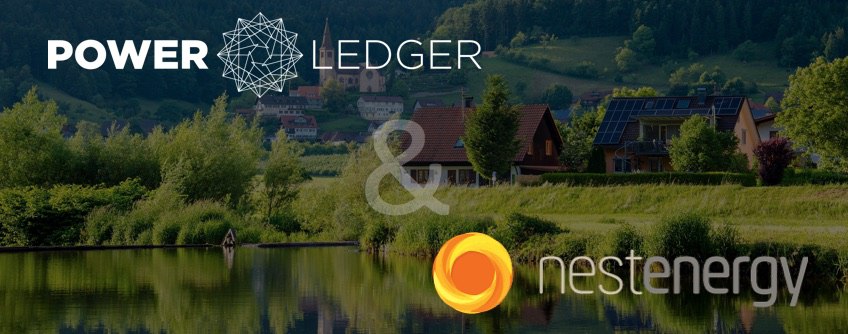
Perth, Australia - September 12, 2017 - Tasmanian renewable energy company,
Nest Energy and West Australian blockchain energy technology company,
Power Ledger have joined forces to bring a new, high-value model of distributed renewable energy generation to Launceston.
The Merino Street Project will see 1 megawatt of solar panels installed on commercial roof-tops with energy traded between customers in the commercial precinct.
Trading energy between customers allows the investors in roof-top PV to maximise the scale of their investment knowing they can sell their excess energy to their neighbours for a healthy return.
The project will be the first of many in Tasmania with Power Ledger and Nest agreeing to a partnership arrangement that will see Nest offering the energy plus trading product to Tasmanian customers under exclusive terms.
Power Ledger managing director, David Martin said; "Coupling on-site renewable energy generation with peer-to-peer trading allowed businesses the opportunity to maximise the value of their renewable energy investment while sharing the benefit with neighbouring businesses."
“In a commercial precinct like Merino Street, not all customers have access to sufficient roof-space to install their own solar panels, but using the Power Ledger trading platform, they can now buy clean, low-cost energy directly from their neighbours,” Mr Martin said.
“Energy trading changes the value proposition for businesses installing roof-top PV; not only do they save money from reducing their exposure to retail energy prices, they can earn a healthy return selling their excess power, in effect, monetising their unused roof-space,” he continued.
Power Ledger uses world-leading blockchain technology to create an immutable record of energy generation and consumption allowing consumers in strata-titled developments to buy and sell energy among themselves with confidence.
Managing director of Nest Energy, Mark Barnett said large scale solar on commercial premises was a cost-effective way for businesses to reduce their energy costs. “Solar generation has a great correlation with business hours so can help businesses reduce their reliance on expensive grid-supplied energy,” he commented.
“Solar already has a great pay-back for customers but adding the ability to sell energy to your neighbours really makes installing solar make a lot of sense. It makes even more sense if a business operates five days a week because they can sell most of the power they generate on weekends to neighbouring businesses who are open on weekends,” Barnett concluded.
The Merino Street Project will be the first time Nest and Power Ledger have come together to provide the energy plus trading project in Australia and is an Australian-first for peer-to-peer traded energy in a commercial precinct







